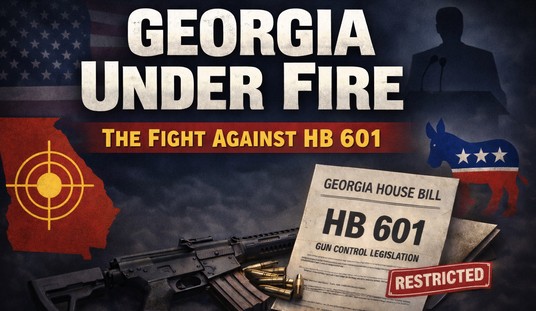There are a lot of organizations out there that support gun control. I’m not talking about the groups like Brady and Giffords that have made it their mission to cram gun control down our throats, either. I’m talking about groups that supposedly stand for something else, yet somehow manage to make gun control part of their rhetoric for some idiotic reason.
And there are a lot of them.
I recently came across a story that addresses the problems for members of these organizations who may also support the Second Amendment.
Americans who agree or disagree with such proposals can vote accordingly. They can also choose to support nonprofits that agree with their views. Major activist groups such as the Brady Campaign to Prevent Gun Violence, Everytown for Gun Safety, and Giffords vigorously push gun control nationwide. Because they explicitly state this mission, there is no risk of confusion over their stance on the issue. Americans who support gun rights can simply decline to support such organizations, without affecting their ability to get involved in other issues they care about.
But the situation is rather different when groups that exist for apparently unrelated purposes nevertheless stake out definitive positions on gun policy. This leaves supporters and members of such organizations who also support the Second Amendment with three options:
- Remain unaware of the group’s stance on guns, unwittingly supporting a position they oppose.
- Drop support for the organization (and all the organization’s other causes that they value) due to its stance on guns.
- Compromise their own values by continuing to support the organization despite its pro–gun control position.
None of these are particularly good outcomes, but regrettably, many nonprofits present their pro–gun rights members and supporters with exactly this conundrum.
It is, unfortunately, true.
Further, many of these organizations are professional organizations that many in a given field may feel almost obligated to be part of in order to stay abreast of their profession. The author, Robert Stilson, presents some examples.
Some of the largest labor unions take decidedly anti-gun positions. National Nurses United has called for a ban on assault weapons, and its state affiliate, the California Nurses Association, endorsed background checks on ammunition purchases and a (recently struck down) ban on magazines that hold more than 10 rounds. The American Federation of State, County and Municipal Employees has passed resolutions that support imposing a “duty to retreat” on innocent people who are attacked in public and call an assault weapons ban a “reasonable” recommendation.
The National Education Association has passed resolutions supporting a “national database of gun sales,” bans on assault weapons and magazines, and waiting periods for all gun purchases. In 2019, it filed an amicus brief with the Supreme Court that appeared to question whether the Court’s prior ruling that the Second Amendment confers an individual right to bear arms “is correct and should continue to be followed.” The American Federation of Teachers adopted a resolution in 2018 that not only advocated various restrictions on firearms, but also resolved specifically to “combat” the National Rifle Association. Where does such language leave pro-gun union members?
Other examples can be found in major professional associations. The American Bar Association, despite its motto of “Defending Liberty, Pursuing Justice,” has a long history of supporting restrictions on gun rights and even filed an amicus brief with the Supreme Court in 2008 arguing that the Second Amendment did not confer an individual the right to bear arms. The American Medical Association, American Psychological Association, National Association of Social Workers, and American Academy of Pediatrics all support a variety of firearms restrictions that go far beyond important gun safety education and outreach (which, to be fair, they also engage in). Instead, their favored restrictions constitute what many people would consider to be infringements of Second Amendment rights.
And honestly, there are many others.
Those who are part of these organizations find themselves stuck, especially since there often aren’t alternatives for these groups. Sure, there may be a pro-gun group for doctors (there actually is) or for social workers, but they’re not the same kind of professional organizations that will also distribute the latest research or whatever else groups like the AMA may do for its members.
Hell, it may be an actual requirement to be members of some of these groups whether you want to or not.
This represents a real problem within these groups.
For many, it’s better to just be quiet and keep your head down. Rocking the boat may hurt job prospects down the road, after all, and that’s something no one wants to do. Again, that’s part of the problem, though, because anti-gun members don’t even blink at rocking the boat. As a result, these groups end up driving further toward the anti-gunners because they don’t think there’s really much opposition.
I don’t have an answer, though.
What I do have, however, is a deep disgust of professional organizations and unions engaging in political advocacy that doesn’t directly impact their profession. At some point, they’re all but begging for someone to step in to put a stop to it, and no one is going to like it when that happens.








Join the conversation as a VIP Member